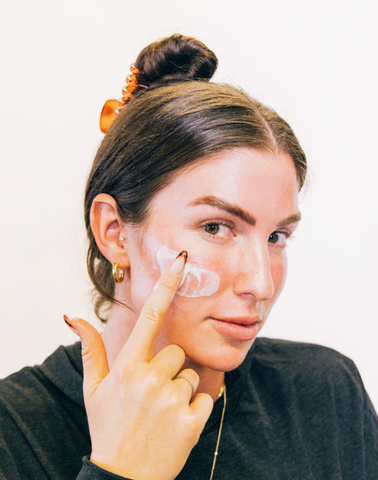As the seasons change, so does your skin. Unfortunately, those changes are often not wanted or welcome. One of the most challenging skin issues can be itchiness due to temperature changes, dryness, or allergies. Using an anti itch cream can provide relief. The good news is there are ways to cope with itchy skin any time of the year, no matter what the cause might be.
Spring Refresh: The Problem with Seasonal Allergies and Itchy Skin
When spring blooms start to make an appearance, pollen can also begin to wreak havoc with the skin. Seasonal allergies can exacerbate skin conditions like eczema, leading to more itch and inflammation. Bugs also come out during the spring months, increasing your risk for itchy stings and bites.
To minimize the effects of this allergy-ridden season, stick with hypoallergenic skincare products that are fragrance-free to avoid additional irritation. Formulas specifically designed for sensitive skin are often a good choice. Treat flare-ups as soon as they occur with topical cortisone cream or allergy medication for itch relief.
Use bug spray when outdoors, or stick with long sleeves and pants to minimize your risk. Avoid being outdoors when insects are most active, such as after dusk. If you do suffer from allergies, see your doctor about the appropriate treatment regimen for this time of year.
Welcome Summer: Sun Protection and Itchy Skin Treatment
The summer months are the perfect opportunity to enjoy the great outdoors to the fullest, but that harsh summer sun can be hard on your skin. The most important step you can take to protect delicate skin is to wear sunscreen with an SPF 30 or higher. In addition to avoiding redness, itchiness, and irritation caused by sunburn, you also minimize your risk for dangerous skin cancer. For itchy skin treatment during summer, consider cooling gels or lotions.
Summer temperatures can also cause skin issues like heat rash, a condition characterized by bumps on the skin that can become very itchy. The cause of heat rash is sweat trapped in the skin. You can help prevent it by wearing loose clothing and avoiding pore-blocking skincare products. Treatment involves cooling the skin, which usually allows heat rash to subside without additional intervention.
Fabulous Fall: Falling Leaves and Dry Skin
When the leaves start to fall, so does the humidity in the air. That moist, warm air of summer gives way to drier air that can dehydrate the skin. Add the controlled heat that warms our homes and offices this time of year and you have a recipe for skin disaster. Itchy, flaky skin may be a sign the season is changing. Address these symptoms by upping your moisturizing game, choosing a product that is appropriate for your specific skin type. Home remedies for itchy skin can also be beneficial during this transitional period.
Autumn is also a time when mold spores make their appearance, in the piles of dead leaves or other vegetation heading for its winter hibernation. Like other allergens, mold spores can cause skin irritation and itchiness. Long sleeves and pants will help combat the effects, and a shower before bed ensures those spores don’t get into your sheets.
Winter Chill: Colder Temps and Winter Skin Care
As the thermometer drops, dry skin becomes more of an issue. Many of us combat the cold by turning up the thermostat or soaking in a hot tub, both of which can strip the skin of natural oils and lead to irritation and itching. The last thing you want is to stress the skin further, so stick with soothing formulations without harsh chemicals or irritating ingredients for effective winter skin care.
Your face isn’t the only area that needs extra pampering this time of year. The skin on the elbows, knees, hands, and feet also tend to dry out, requiring additional moisturization through rich creams or body butters. Sleeping with a humidifier in your room can also help soothe winter dryness.
If you see an increase in breakouts during the winter months, don’t be surprised. Dryness disrupts the skin barrier, which may lead to an excess of skin cells that can clog pores and bring on the pimples. Oily skin may need special treatment to address the overproduction of sebum, but don’t neglect the moisturizer or you will see more problems arise. Use a light, oil-free moisturizer to restore hydration without contributing to additional breakouts.

More Causes of Itchy Skin
Sometimes that itch can’t be attributed to the seasonal change. Underlying conditions like hyperparathyroidism can also cause skin irritation and itchiness, requiring medical attention to ease the symptoms. Hyperparathyroidism occurs when the parathyroid glands produce too much of the parathyroid hormone (PTH). In addition to itching, parahyperthyroidism symptoms may include hair loss, muscle pain, and weakened bones.
When itchy skin becomes a problem, contact your healthcare provider to determine the cause, particularly when it is accompanied by other symptoms. If an underlying health condition is to blame, treatment of the condition may ease the uncomfortable skin symptoms as well.
Adjustments to your skincare program can also relieve the symptoms of dry skin when it is due to changes in the temperature and humidity. Keep your skincare products in line with each season to ensure your skin looks and feels its best all year long.
Dr. Babak Larian is a board-certified surgeon specializing in head and neck surgery and known for minimally invasive techniques in treating parathyroid disorders. He serves as Clinical Chief of the Division of Otolaryngology at Cedars-Sinai Hospital in Los Angeles, after graduating from UC Irvine School of Medicine and completing a residency at UCLA. Dr. Larian values strong bonds with his patients, emphasizing trust and individualized treatment options. https://larianmd.com/









Leave a comment
This site is protected by hCaptcha and the hCaptcha Privacy Policy and Terms of Service apply.